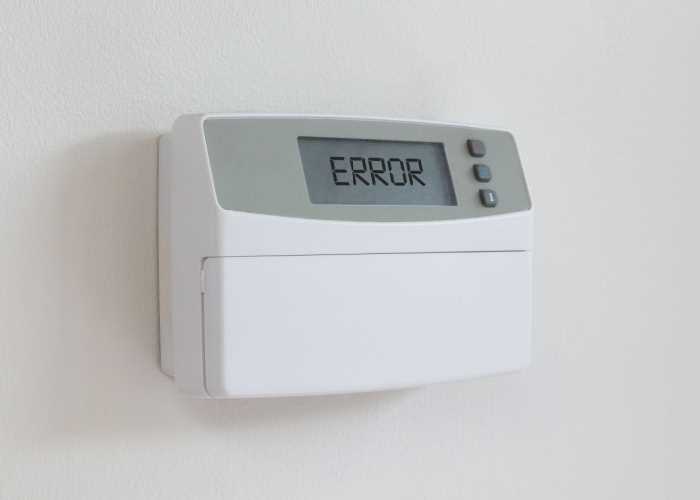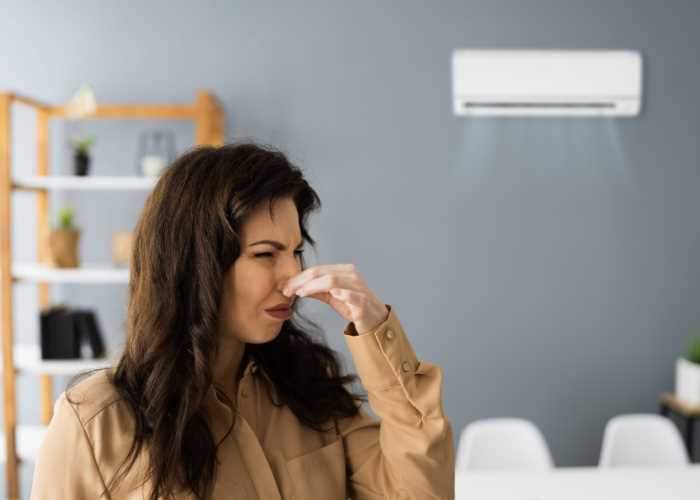Heat pumps offer a cost effective and eco-friendly way to keep your home warm in winter. But like any electrical system, they can sometimes malfunction.
The good news is that most issues can be fixed with relative ease.
Below we cover the most common issues you’re likely to encounter with your heat pump in the colder months, and what to do if they do occur.
A malfunctioning heat pump that fails to heat or turn on can result in a chilly home, discomfort, and increased energy bills. There are multiple reasons why your heat pump might be experiencing difficulty here. Some of these have a simple fix, while others may require professional assistance.

Cause: if your heat pump is not heating, the first culprit to investigate is the thermostat. A misconfigured setting, low battery, or a tripped circuit can render the thermostat ineffective.
Solution: begin by ensuring the thermostat is set to 'heat' at the correct temperature. For battery-operated thermostats, check for low battery levels and replace them if needed. If the issue persists, investigate the circuit breaker for any tripped circuits. If all else fails, you may need a professional to recalibrate the thermostat.
Cause: closed radiator valves or clogged air filters can impede the heating process, resulting in insufficient hot water or hot air circulation.
Solution: Confirm that radiator valves are open for air-to-water heat pumps. If you have an air-to-air heat pump, inspect and clean air filters regularly. If filters are excessively dirty, you might need to replace them to maintain unobstructed air flow.
Cause: a heat pump's inability to heat might stem from a loss of electricity supply. Both the indoor and outdoor unit switches need to be in the 'on' position for proper functionality.
Solution: verify that both switches are set to 'on.' If the issue persists, investigate the circuit breaker for any tripped circuits. Should the problem persist beyond these checks, consult a technician to address potential complications in the electrical supply.
Cause: insufficient levels or leaks in the refrigerant can impede the heat transfer process within the heat pump, resulting in inadequate heating.
Solution: if you suspect low refrigerant levels or a leak, it’s important to contact an experienced technician to rectify the issues as soon as possible.
Cause: debris such as leaves or snow, or objects placed in front of the outdoor unit can impede necessary airflow.
Solution: regularly check and clear the outdoor unit of anything that could cause an obstruction. If the problem persists, consult a technician to investigate and address potential underlying causes affecting the outdoor unit's performance.
If your heat pump is running constantly, it can result in increased energy consumption and higher utility bills. It can also be indicative of an underlying issue, so it’s important to address the root cause quickly to prevent further damage.
Cause: if your heat pump runs incessantly, the thermostat might be set at an excessively high temperature, causing it to struggle to maintain the desired warmth.
Solution: ensure the thermostat is set within the recommended range of 18ºC to 22ºC during winter. If your home remains uncomfortably cold, consider enhancing insulation to minimise heat loss.
Cause: an undersized heat pump may continuously operate to meet the heating demands of a larger space, resulting in constant and inefficient performance.
Solution: evaluate whether your heat pump is appropriately sized for your home. If it's insufficient, upgrading to a larger model will ensure it can adequately heat the space, reducing the need for continuous operation.
While it's normal for heat pumps to accumulate ice in winter, persistent icing on the outdoor unit can lead to reduced heat pump efficiency, increased energy consumption, and potential damage to components.
Cause: a malfunctioning automatic defrost function can contribute to persistent icing. The defrost function is designed to melt accumulated ice at regular intervals, ensuring the system operates efficiently.
Solution: professional attention is required to address issues with the automatic defrost function. A technician can diagnose and rectify any defects, ensuring that the defrost cycle operates as intended.
Cause: faulty or slow-moving fans can impede the dissipation of heat, leading to freezing of the outdoor unit.
Solution: well-functioning fans are crucial for maintaining optimal heat pump performance, so call in a technician to assess the condition of the fans, repair or replace them as needed, and ensure they operate at the proper speed.
Cause: insufficient refrigerant levels can exacerbate ice buildup on the outdoor unit.
Solution: schedule a technician to inspect and replace the refrigerant. A professional assessment will identify any leaks or issues with the refrigerant levels and address them accordingly.
Unusual smells from the heat pump can be a sign of a range of underlying problems, from mould growth to electrical issues. Identifying and resolving these issues promptly is crucial to prevent further damage.

Cause: a musty smell may indicate mould growth within the heat pump.
Solution: for minor mould growth, clean affected areas with a damp cloth. However, if the mould is extensive, it is advisable to seek professional attention. Technicians can thoroughly inspect and clean the system to eliminate mould and prevent potential health hazards.
Cause: a rotting smell may suggest the presence of a deceased animal within the unit.
Solution: if you detect a foul odour indicative of a dead animal, take immediate action by safely removing the carcass if accessible. In cases where access is challenging or unsafe, it's best to hire a professional for assistance.
Cause: smoky or fishy odours may point to motor or wiring problems within the heat pump.
Solution: if you notice such odours, turn off the heat pump immediately and seek professional assistance. Electrical issues pose a potential fire hazard and require expert evaluation and repair.
Unusual sounds from the heat pump can be a sign of various problems, ranging from loose hardware to motor issues. Again, it’s important to quickly identify and resolve these issues to prevent further damage.
Cause: a rattling noise may result from loose hardware or internal components.
Solution: tighten any loose screws to eliminate rattling. If the noise persists, it could indicate loose internal components that require professional attention.
Cause: a grinding or squeaking noise may be indicative of a worn-out motor or coils.
Solution: if you hear such sounds, turn off the heat pump immediately and consult a technician, as continuing to operate the system in this condition can lead to further damage.
Cause: if the heat pump is louder than usual, it may be overworked or undersized for the space it is heating or cooling.
Solution: call a professional for a thorough assessment of the system. A technician can determine the appropriate size for your home, ensuring the heat pump operates at an optimal level, providing efficient heating without unnecessary noise.
At Loughborough Air Conditioning we’re experts in all aspects of temperature control - including the maintenance and repair of air source heat pumps.
To assure you of our professionalism and quality of service, all our engineers carry the ACRIB SKILLCard. We’re also accredited by Trustmark - the only Government endorsed quality scheme for tradespeople in the UK.
If you have a problem you think warrants professional attention, we’re often able to diagnose and fix common faults in a single visit.
